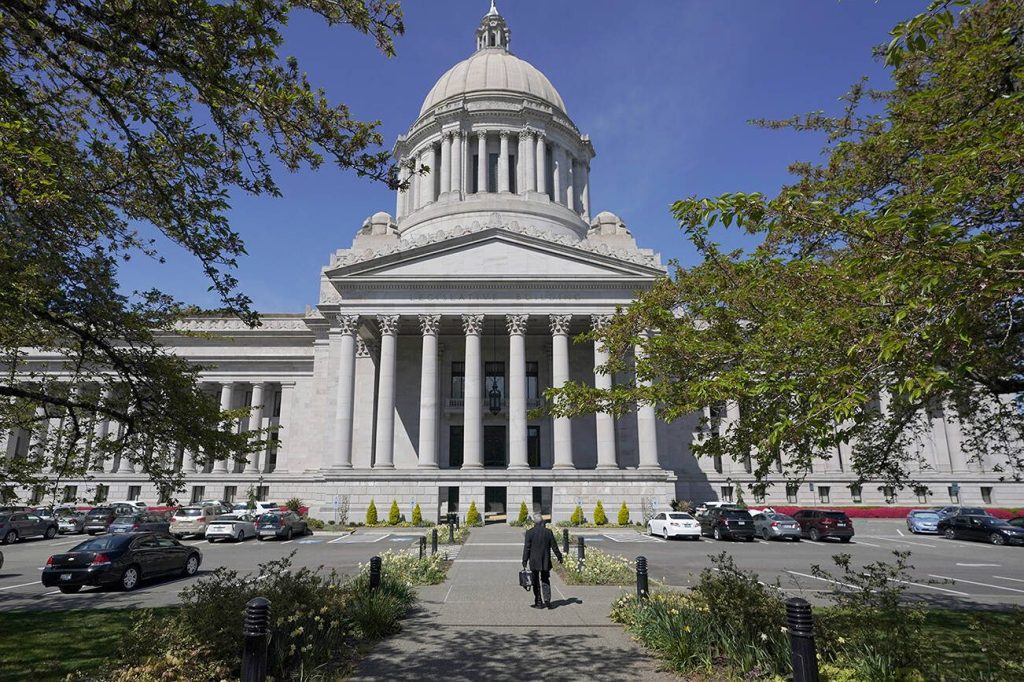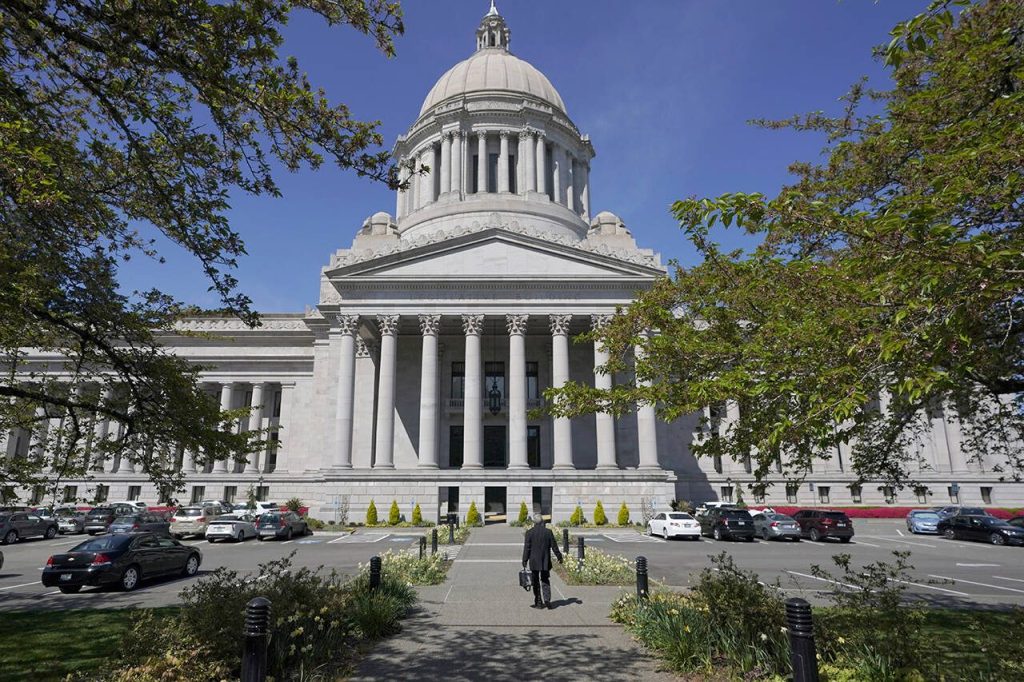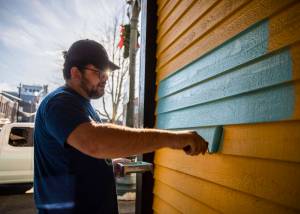Cities, county look to step in after state balks on Blake bill
Published 1:30 am Tuesday, April 25, 2023


EVERETT — Leaders of several cities and Snohomish County are moving quickly to fill the void created by state lawmakers’ failure to agree on a statewide strategy for dealing with illegal drug possession.
Count Sultan mayor Russell Wiita as among those happy the issue, for now, is being left to cities and towns.
“The bill that was in front of the House would have set us backwards,” Wiita said. “Sending this down to local jurisdictions is a challenge, no one’s arguing that, but we’re going to be in a better place than what we would have been in with that bill.”
Wiita said that Sultan will begin to explore its own laws regarding controlled substances in May. They could very well join Marysville, Arlington and Lake Stevens as cities in Snohomish County with laws on the books to arrest people for simple drug possession. Everett could join them in a few days.
And Snohomish County Councilman Nate Nehring said he will soon propose one for enforcement in parts or all of the county. He announced his intentions Sunday night, a short time after the House failed to pass legislation to provide a permanent statewide response to illegal drug possession.
Local governments are responding to what’s transpired since the state Supreme Court ruling known as the Blake decision, which erased the felony penalty for possession. Following that 2021 ruling, the Legislature did re-criminalize possession with a separate law making the penalty a misdemeanor. That law expires July 1.
On Sunday, hours before adjourning the session, the House debated but failed to pass a bill to increase the penalty for drug possession while providing those with substance use disorder numerous paths to receive assistance and avert incarceration.
It would have made possession of small amounts of illegal drugs a gross misdemeanor, a notch more serious than the current misdemeanor penalty. It also provided for pre-trial diversion, possible vacating of convictions and $271 million for treatment and recovery services.
Some Democrats opposed the penalty as too harsh. Republicans had many concerns including whether the paths through diversion were too soft. Democrats who supported the measure saw it as a better alternative than a hodge-podge of local laws.
“Chaos will ensue if local governments are allowed to make their own drug use policies city by city, block by block, neighborhood by neighborhood,” Rep. April Berg, D-Mill Creek said in the floor debate.
For now, Sunday’s result leaves enforcement of drug possession violations in the hands of cities and counties after July 1.
Gov. Jay Inslee doesn’t want that. He wants lawmakers to find agreement on a statewide strategy. When they do, he said he’ll bring them back for a special session to pass it. “That needs to happen before July 1,” he told reporters.
Here’s what is happening now.
Snohomish County
Councilman Nate Nehring, a Republican, said “the Legislature’s inaction was unfortunate but “opens the door for counties and cities to address this issue at the local level. The scourge of deadly drugs on our streets is among the most pressing public safety issues our communities face.”
Nehring is working with the county’s legal team to see if an ordinance covering the entire county, both incorporated and unincorporated is possible. He’s not set a date for formally introducing it.
Snohomish County Prosecuting Attorney Jason Cummings is willing to consider the idea after lawmakers dropped the ball.
“Doing nothing is not an option,” he said. “There needs to be a stopgap measure. That’s why you are seeing so many jurisdictions are poised to act quickly before the July 1 deadline.”
Snohomish County Council members Strom Peterson and Sam Low also serve in the Legislature and cast differing votes in the House on Sunday.
Low, a Lake Stevens Republican, opposed the bill. He said he could have backed an earlier version passed by the Senate but that wasn’t in front of them.
“As a county council member we’re going to have to deal with it if the state won’t,” he said, adding he assumed he’d support Nehring’s proposal.
Peterson, an Edmonds Democrat, supported the state legislation because he didn’t want a patchwork of different laws popping up in communities across the county and state.
“I don’t think that’s good public policy,” he said. If lawmakers can find a solution before July 1 it would moot the need for a county law.
A list of current cities’ attempts to toughen drug possession:
Everett
Everett Mayor Cassie Franklin
In a briefing to the Everett C
“We’re already seeing impacts
Council member Liz Vogeli asked
Bryan Partington, an Everett resident who lives near the Com
“I just do
The Everett council is schedul
Marysville
Late last year, Marysville passed two ordinances regarding controlled substances. The first made public drug use a misdemeanor, while the second, which is also a misdemeanor, dealt with disturbances on public transit.
Both offenses can be brought through municipal courts instead of having to go through county or state prosecution.
“If we control our own destiny and have the ability to prosecute with our own city prosecutors, that just gives us more control over these kind of decisions,” Marysville mayor Jon Nehring told the Herald in January.
Arlington
On April 3, the Arlington city council passed a resolution to make use of controlled substances in public a misdemeanor and did the same for possession of paraphernalia with intent to use.
The ordinance also amended the referral rule. Police officers in Arlington now have the option to extend a referral but are not required to — meaning they can book a person into jail regardless of if they have been offered a referral or not.
“It is intended to be a temporary fix to the Blake Decision … it may be a temporary fix,” Arlington city attorney Steve Peiffle said during a city council meeting on April 3. “The idea is to provide another resource to our officers to try and deal with situations they’re encountering on the streets.”
Lakewood
Lakewood passed a similar ordinance to the other towns in March. The city made using controlled substances in public as well as unlawful deposit of drug paraphernalia into gross misdemeanors.
A council document noted a 27.5% increase in calls in a .2 mile radius around 100th and South Tacoma Way to Perkins Way as partial justification for the ordinance
“The intent in this proposed legislation is to reduce open use of drugs, reduce violent and property crimes, increase public safety, and allow for an opportunity for court intervention and treatment,” the document states.
Jordan Hansen: 425-339-3046; jordan.hansen@soundpublishing.com; Twitter: @jordyhansen.






